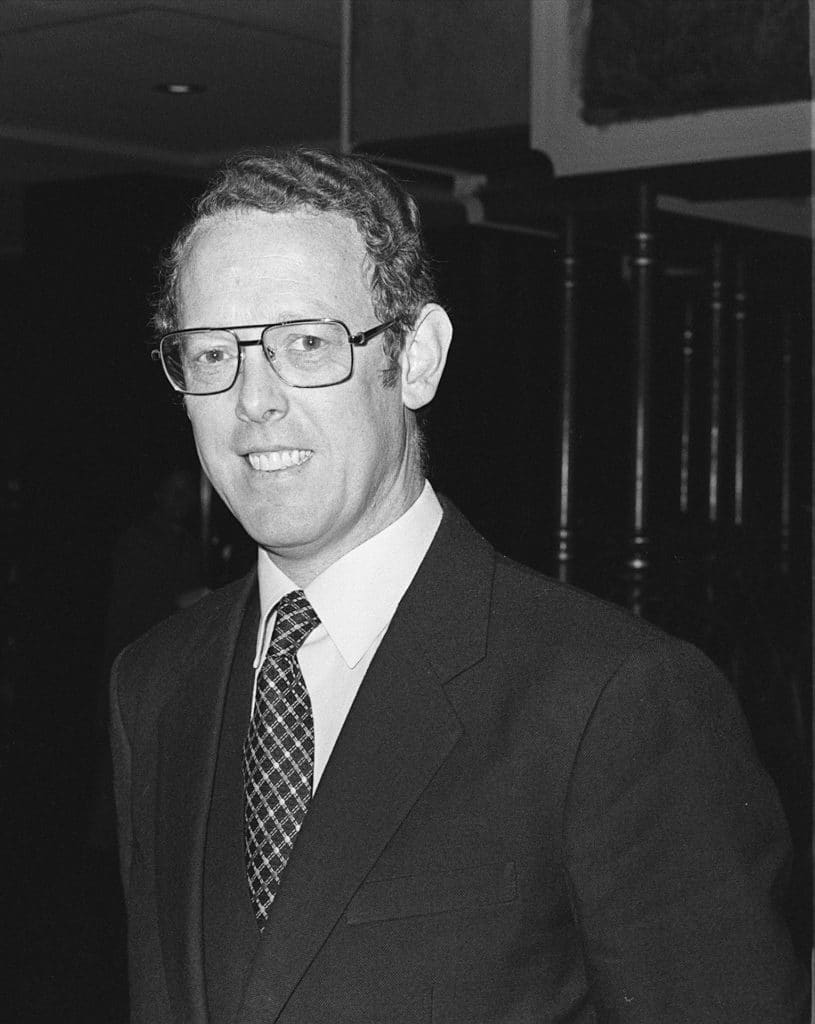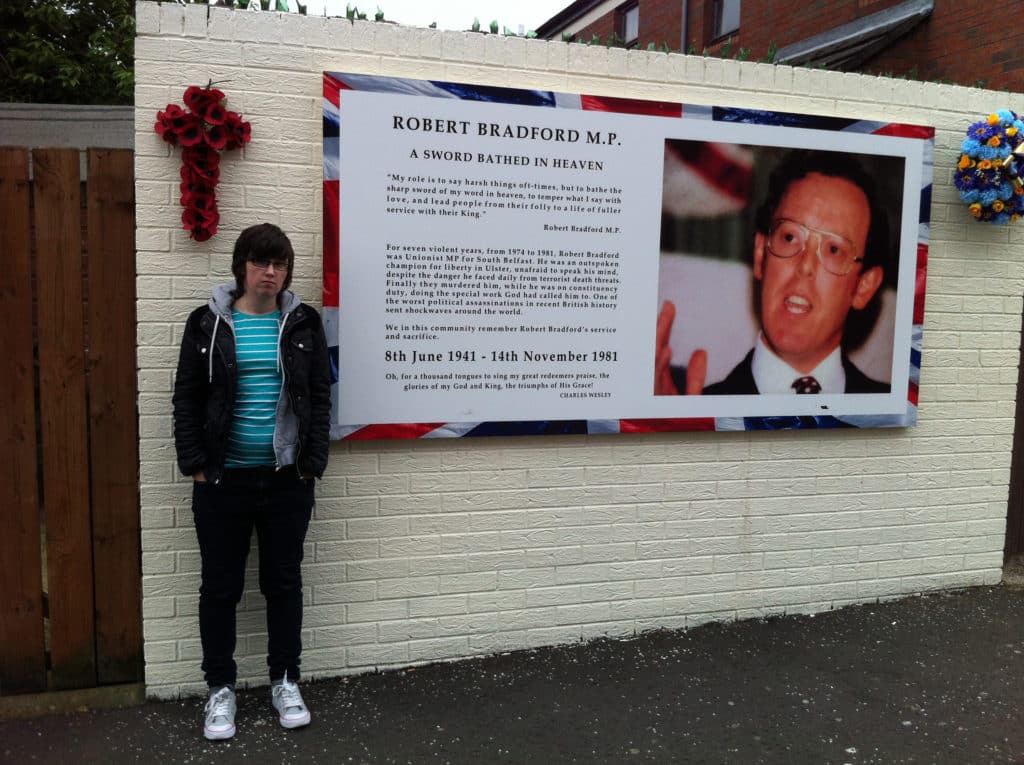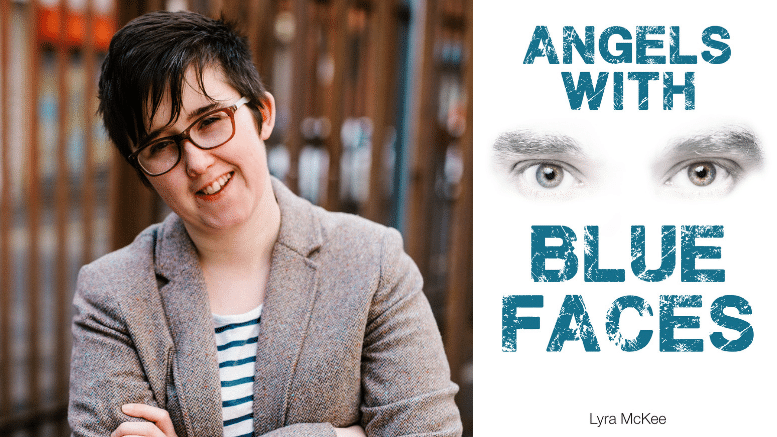Comments Lyra sent to her editor Janine Cobain on March 6, 2019: “Given that this is a tale of non-fiction, it’s probably appropriate that it began with a question rather than an idea. The question that led to Angels With Blue Faces came out of – what I thought was – a completely unrelated conversation about a children’s home.
“Angels With Blue Faces was born out of what was essentially an urban myth, this suspicion by a section of one community who believed that a politician had been asking questions about something shady before he was murdered. It intrigued me so much – I wondered, “Why does this rumour exist? Where does it come from? Is there a grain of truth in it?” And I essentially fell down a rabbit hole with those questions, trying to answer them.
“I started working on this book when I was 22 which is a good and a bad age to take anything big on. It’s good because you’re too young to realise when you’re in over your head but you give it a go anyways and it’s bad because you don’t realise you’re in over your head! And you underestimate just how hard everything is, too. Over time, I learned that not every mystery can be solved and there’s not always a smoking gun, especially after decades have passed – but it’s still worth seeing what parts of the story you can salvage.
“The one thing I learned from this book is that The Troubles are often portrayed as a black-and-white narrative but, really, it’s so much more complicated than “X side fought Y side”. It can’t be reduced to a formula. War is messy and complicated and in the aftermath, where people like me try to make sense of it all, the answers are hard to find because they’ve become lost in the fog of conflict. I hope, if anything, readers come away with an appreciation for just how messy this conflict was.
“I spent so many years writing and researching this and then trying to get it published. It’s a relief to see it in the world! I hope, more than anything, that it adds to our understanding of this war that has shaped us all, even those of us born as it was coming to an end.”

Excerpt from the book: “I began researching Angels with Blue Faces – the book you hold in your hands (or on your phone, tablet, or Kindle) – when I was 22 years old. It arose out of another story entirely, when I was blogging, filing Freedom of Information Act requests, and asking questions about a decades-old scandal involving a children’s home. At the time, I’d just begun working as an editor for a news site covering the media industry, based out of Silicon Valley, but I wanted to flex my muscles and prove to myself – and others – that I could report too. I’d spent years gaining experience through internships and then freelancing my way through university. Journalism could feel like a dying industry at times and – certainly at the regional level of Northern Ireland – there were few opportunities to do big, blockbuster stories in print. Meanwhile, though, in the United States, literary nonfiction of the New Yorker variety was seeing a renaissance, with sites and communities like Longform and #longreads popping up.
“Inspired by this movement and writers like Michael Hastings – an American war correspondent who sadly died on his own home soil in a horrific car crash, aged 33 – I wanted to do something similar, something I hadn’t seen done in Northern Ireland before, and write a nonfiction story that read like a novel.
“This was an ambitious undertaking for a young, still ‘wet behind the ears’ journalist. I’d known people who’d been in the IRA but only to see in the local area, as they went about their non-paramilitary related business. Growing up in the Catholic community in Northern Ireland – who had a historically uneasy relationship with the local police, for a variety of reasons – meant I didn’t know any cops or people who’d worked in the security services.

“I developed the contacts I needed, from police to ex-prisoners, often thanks to kind, veteran journalists who took pity on me and made introductions to people they’d known. The BBC’s Chris Moore, Belfast Telegraph columnist Ruth Dudley Edwards, and Anthony and Carrie McIntyre did this frequently. Some of said contacts found me or vice versa.
“It’s taken a long time to get this book into print. Northern Ireland is a beautiful tragedy, strangled by the chains of its past and its present. It’s a place full of darkness and mysteries. It’s also my home. Sometimes, I love it and hate it in equal measure. Yet, despite being a tiny country, we disproportionately contribute talent to the rest of the world.”
In November 1981 gunmen stormed a community centre in South Belfast, murdering Ken Campbell, the centre’s caretaker, and Reverend Robert Bradford, a serving Member of Parliament.
In the hours after the killings the Provisional IRA claimed responsibility for the attack and while there were many arrests, no one was prosecuted for either murder.
While killings during The Troubles in Northern Ireland were commonplace, investigations in to this attack have thrown up more questions than answers.
Bradford was a steady constituency worker, not a particularly vocal political operative, but in the days leading up to his execution had taken out additional life insurance and left instructions about what should happen in the event of his death.
What had he stumbled into that made him fear for his life?

Had Bradford been asking too many questions about instances of abuse by housefathers against young boys in their care at Kincora House, and the links to a pedophile ring featuring prominent members of society?
The security forces had been tipped off about a planned attack on the day of Bradford’s death, yet an operation which would have prevented his murder was delayed, and the life of the police officer guarding Bradford was spared. Why weren’t these deaths prevented?
The Bradford case appears to be all smoke with no guns in sight, but these investigations asks how the murder of an MP during The Troubles goes unsolved for almost 40 years.

